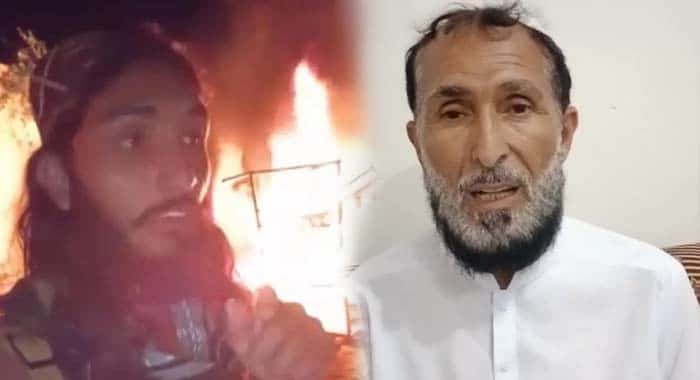As Pakistan continues its decisive war against terrorism, the unwavering resolve of its citizens, particularly from the conflict-affected province of Khyber Pakhtunkhwa (KP), is emerging as a powerful moral and ideological weapon in support of the nation’s armed forces. Ordinary people are demonstrating extraordinary courage by choosing the path of peace, even when it comes at great personal cost.
One such example is Usman Ghani, a resident of Painda Khel Domail, Karak District, who currently resides in Islamabad. Speaking to media, he publicly disowned his son Rasool Ghani, who has joined the ranks of terrorists. In a statement that reflects the painful but firm stance taken by many families in KP, Usman Ghani declared:
“I have been living in Islamabad for nearly 20 years, running my business peacefully. Whenever I visited my native area, I found my son Rasool Ghani involved in terrorist activities. I tried to guide him, but he chose the wrong path. That’s when I decided to disown him. I moved to Islamabad with my wife and children, cutting all ties with him.”
He added, with visible anguish but unshakable resolve:
“When a son strays from the right path, it becomes ”haram” (forbidden) to call him a son. He is no longer my son, and I do not consider him so anymore. I have no contact or relationship with Rasool Ghani, and I am willing to swear on the Holy Quran to prove this.”
This level of commitment reflects a broader societal shift in KP, where communities, long suffering due to terrorism, are now taking bold, public stands against extremist elements. Many families, like that of Usman Ghani, have openly chosen state loyalty over blood ties, rejecting those who engage in violence and subversion.
Security analysts say such societal resolve is crucial in undermining the ideological base of terrorism. The rejection of terrorist sympathies at the family and community level severely limits the support networks that militants once relied upon.
Across KP, stories are surfacing of mothers, fathers, brothers, and sisters refusing to shelter or support family members involved in terrorism, in some cases, even reporting them to authorities. Their message is loud and clear: there is no room for terrorism in Pakistan’s future.
With this collective resolve from the people, particularly those directly affected in the tribal and border regions, Pakistan’s war on terror is not just a military campaign, but a nationwide movement. And in this movement, the terrorists are increasingly isolated and on the losing side.





